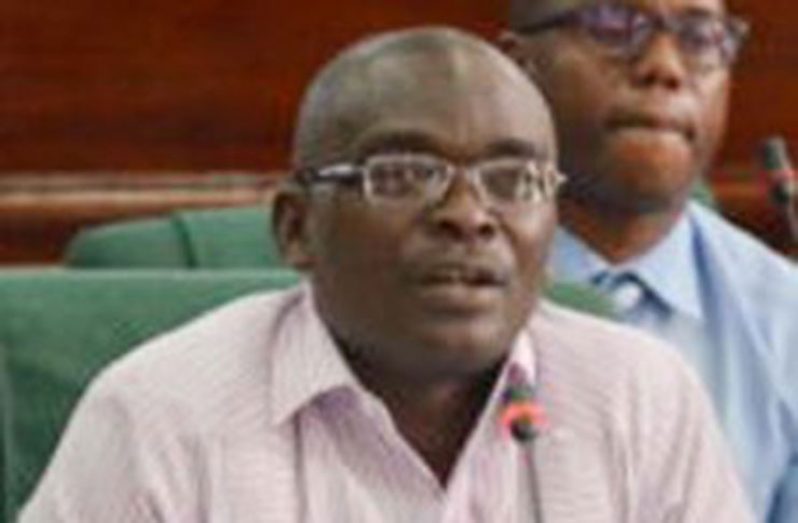– Permanent Secretary McGarrell urges regional, local organs
PERMANENT Secretary of the Ministry of Communities, Emile McGarrell, made a case for regional and local organs to play a more integral role in the delivery of health services, when he addressed health officials during the opening ceremony of the Biannual Regional Health Officers Meeting at the Lake Mainstay Resort.
McGarrell said the Ministry of Communities is convinced that services are more effectively delivered at the ground level, where the impact is greater felt.
For this reason, he said the role of regional democratic organs in health services ought to be clearly established.
“Minister, I believe that we need to work with our regional health committees to not only make them aware, but build their capacity, so that they could be meaningfully and appropriately involved in the delivery of health services,” McGarrell said in the presence of Minister within the Ministry of Public Health, Dr. Karen Cummings and senior health officials.
He explained that building capacity at the level of local government in areas such as mental health, vector control and environmental health can enable them to effectively deliver key services to the people within their municipalities and neighbourhood, allowing for decentralisation.
In such a scenario, the Public Health Ministry would simply provide the necessary resources, oversight and leadership required.
In fulfilling its mandate, he said the Ministry of Communities will continue to enhance the capacity of its regional organs to meet the demands of the people, including in the area of health.
“One element of our mission talks about innovative and collaborative planning for effective service delivery, health is critical and key of the services to be delivered.So we will continue to be a part of any effort to strengthen the capacity of our regional, municipal, neighbourhood and even village councils’ capacity to ensure that our communities remain healthy,” the Communities Ministry Permanent Secretary assured.
That aside, McGarrell said there is an obvious need for clarity on the roles of the Regional Executive Officers (REOs) and Regional Health Officers (RHOs) with respect to the expenditure of resources, noting that there continue to be clashes.
“Let me just make it clear, it is the REO who is responsible for those resources, the REO who is accountable for those resources. But I don’t expect the REO will be making the decision as to what must be required for medical services and medical equipment,” McGarrell stated.
Permanent Secretary of the Ministry of Public Health, Colette Adams, in her presentation, called on the Department of Public Service to understand that with infrastructural development comes the need for greater human resources.
“We want them to understand that when we sometimes seek to have positions, and to build capacity, there is many times [sic] a bottleneck because they don’t understand the delivery of services,” Adams said.
According to her, while there has been significant capital expenditure in the area of health, the human resource gap within the system cannot be ignored.
“We are talking about expanding health and there is no HR!” she lamented.
“We are talking about what we want in the future, where we want to take health and with all of that we are taking it by only infrastructure, which is not the right thing,” she added.
In addition to infrastructure, the disease burden, emerging diseases and human resource capacity must be taken into consideration.
“How are we going to have healthy people if we don’t have human resources?”
Over 53 Health Directors, Regional Health Officers (RHOs), Senior Health Officers, and Regional Executive Officers (REOs) are meeting at the Lake Mainstay Resort, Essequibo Coast, Region Two, for the 2017 RHO Meeting under the theme, “Collaboratively we build a resilient health care system that is acceptable, accessible, timely and appropriate to meet the needs of every person in Guyana.” The biannual meeting opened on Tuesday with the Director of Regional Health Services, Dr. Kay Shako, detailing the progress being made under her watch.
The meeting will come to an end on Friday after extensive discussions on key services provided. The meeting seeks to foster a collaborative approach between the Public Health Ministry and its healthcare partners to effectively and efficiently deliver health care across the 10 administrative regions.




.png)









